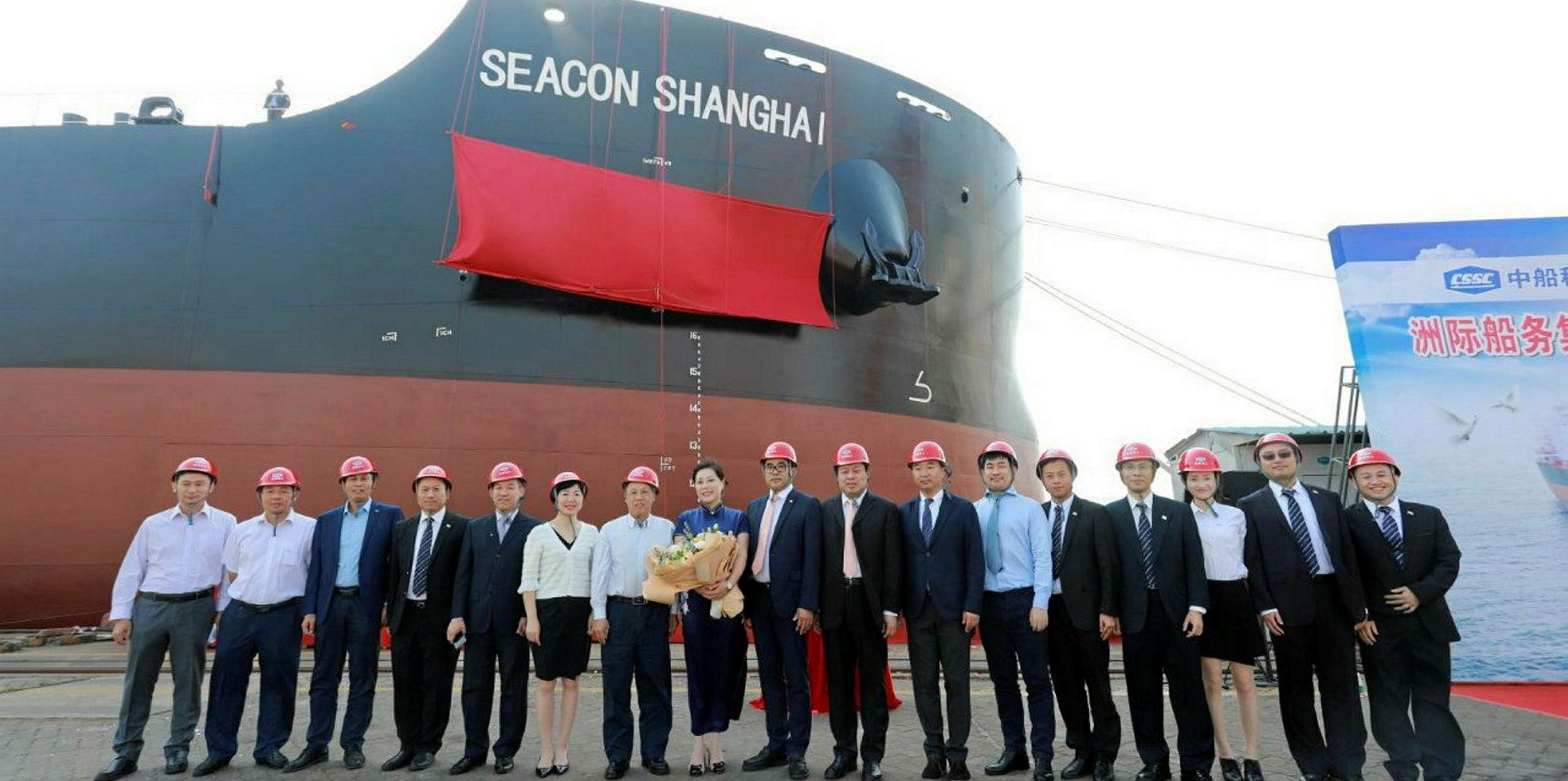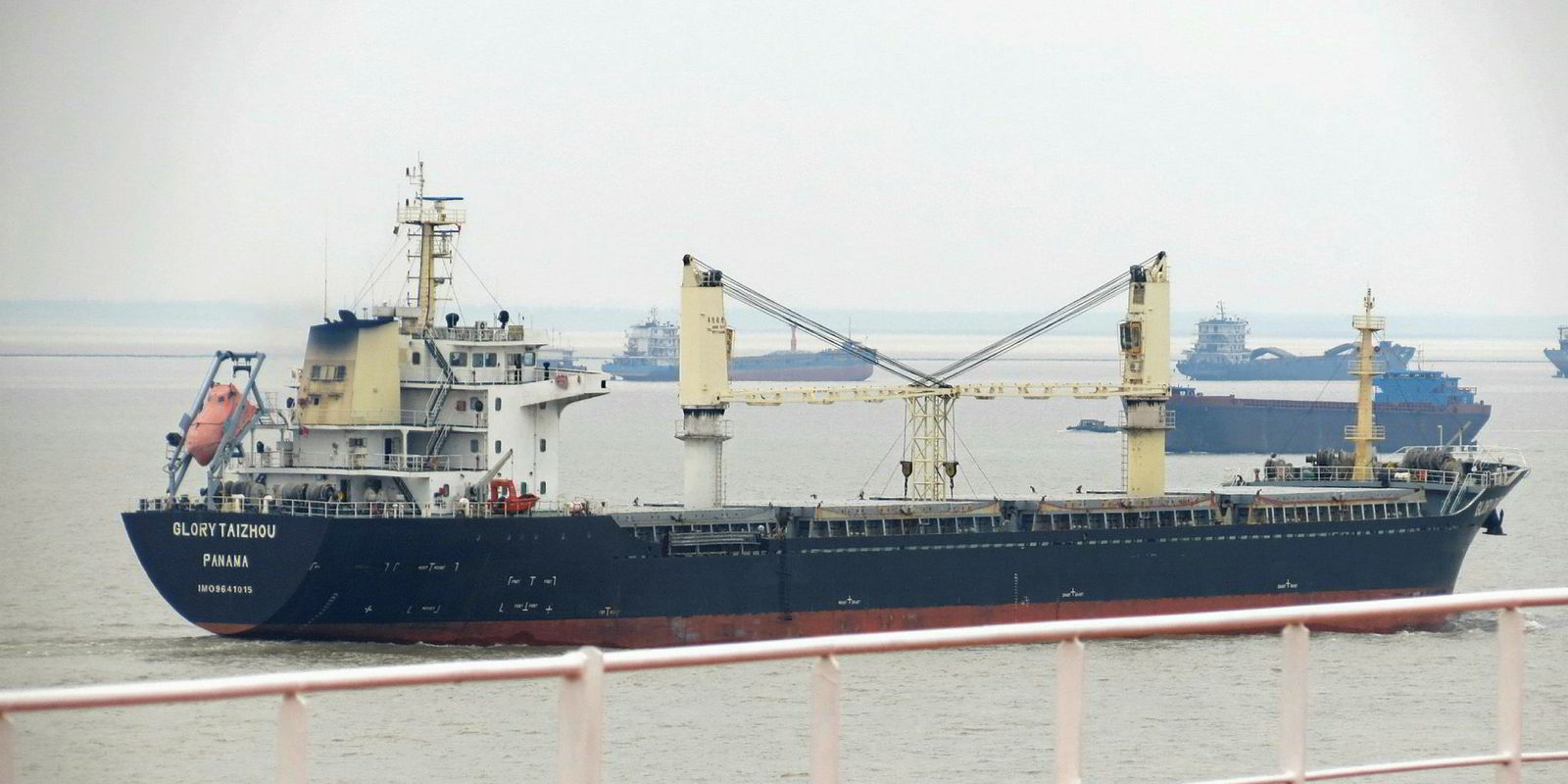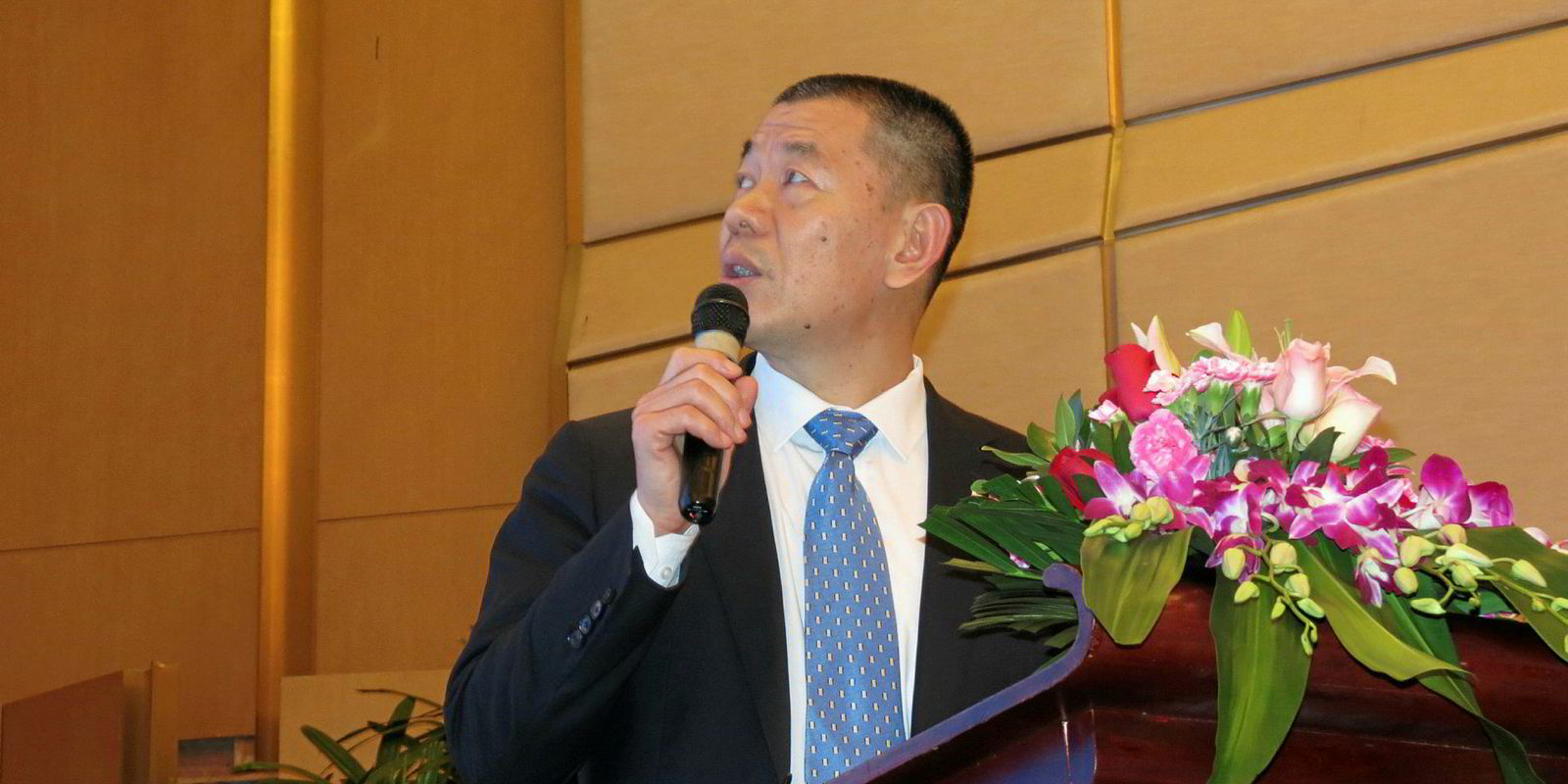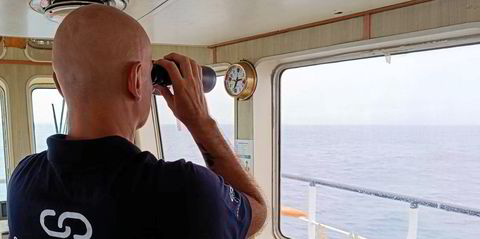Seacon Shipping Group of China has embarked on a rapid expansion of its owned tonnage, growing the fleet by more than one-third in less than a year to around 30 vessels, despite being best known as a manager.
Seacon president Guo Jinkui told TradeWinds that the quick growth came from it acquiring seven secondhand bulkers and taking delivery of two ultramaxes from Nantong Xiangyu Shipyard and a kamsarmax from Huangpu Wenchong Shipbuilding.
“We felt that the resale price of bulk carriers was on the low side and there is significant upside potential to the dry bulk market,” he said.
“The 64,000-dwt bulk carriers from Nantong Xiangyu were our company's first-ever newbuildings.”
Seacon's primary focus is on the handymax and panamax segments. However, the company took the plunge and entered the capesize arena in April by buying Shinyo International’s 170,600-dwt Shinyo Endeavour (built 2002) for $11m. The company has taken delivery of the Sasebo Heavy Industries-built bulker and renamed it Seacon Brazil.
It has chartered out the capesize to South Korea’s Daelim Corp for one year to transport iron ore from Brazil to China.
“Seacon also owns four small chemical tankers,” disclosed Guo. “This is to balance Seacon's fleet portfolio. We are also hoping to expand our presence further in the chemical tanker sector.”

Guo said Seacon is keen to acquire additional vessels as part of the company's fleet growth and renewal programme.
“There is no specific ship-type that we are looking to buy,” said Guo. “It all depends on the market.
Headquartered in Qingdao, Seacon is not only a shipowning company but also a ship operator and shipmanager.
“We are the third-largest shipmanagement firm in China,” said Guo. Seacon manages a total of around 120 ships for both Chinese and foreign shipowners.
“The reasons that we are expanding our owned fleet is not just for investment purposes but also to provide service to our clients who may require some ships. Managing our own fleet will also help us to sharpen our shipmanagement skills.”
In April, Seacon centralised its chartering activities in a satellite office called Seacon Enterprise. The Singapore-based shipping outfit, which is managed by nine staff, will be focused on the company's dry bulk shipping operations.






